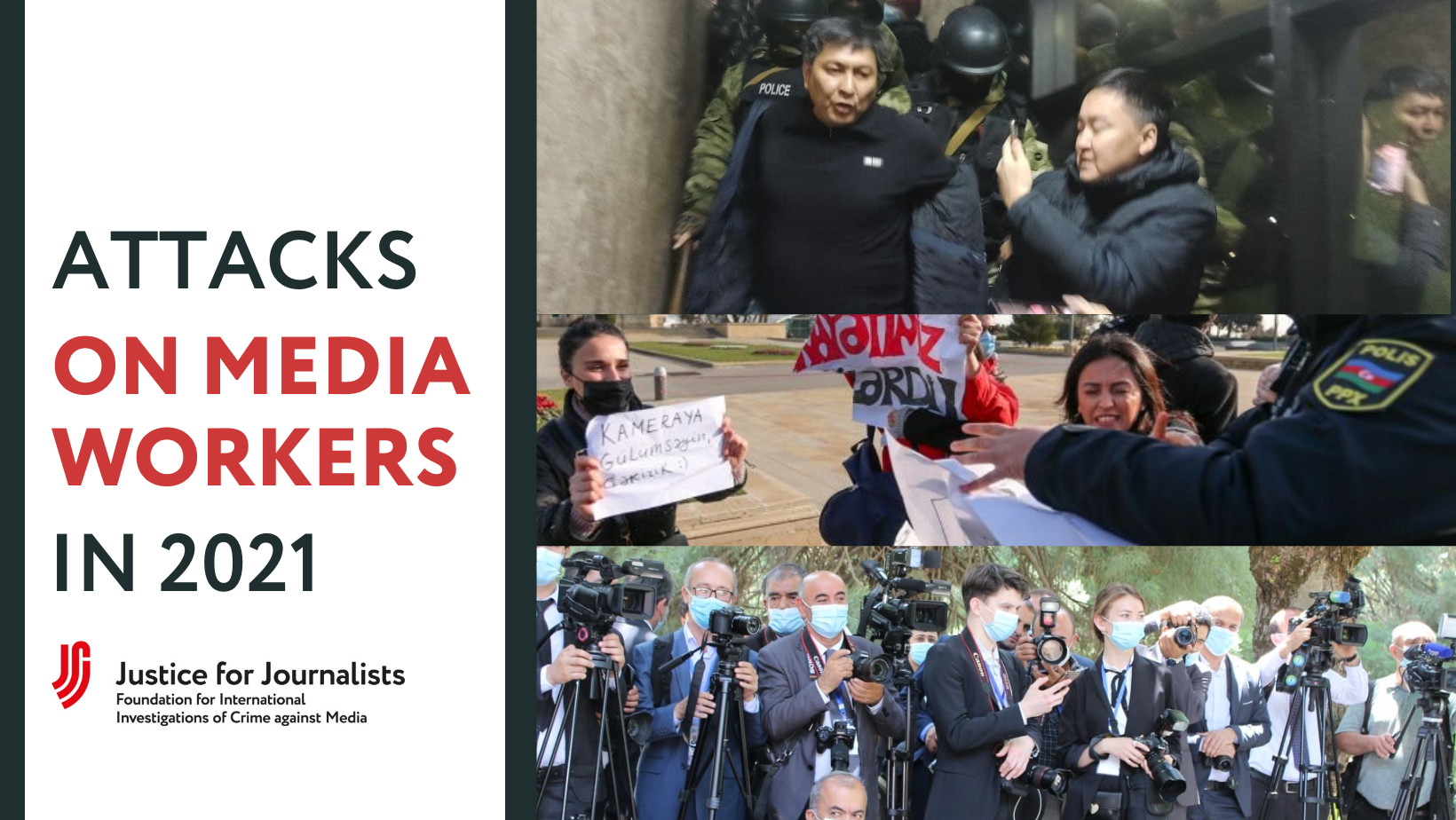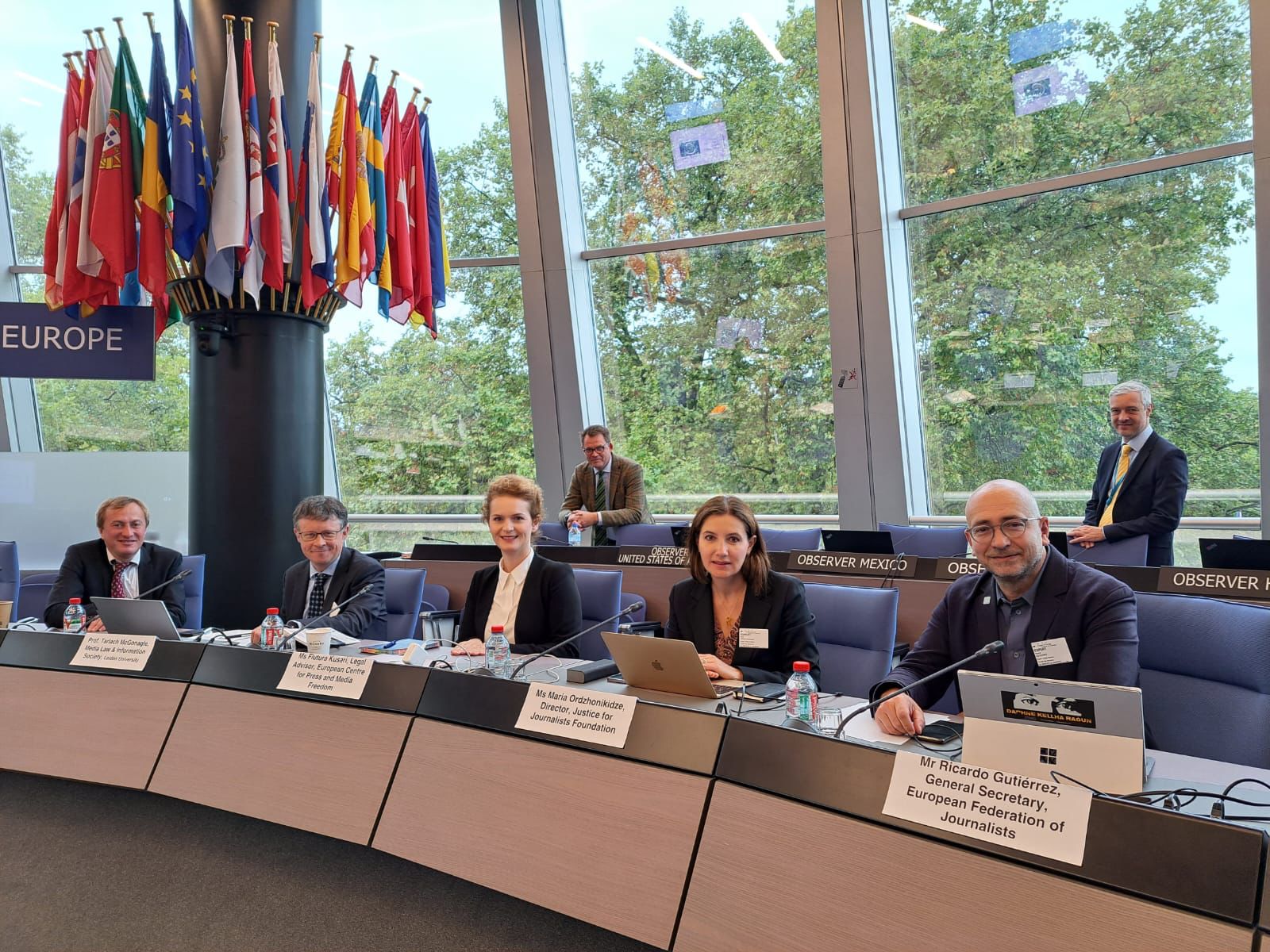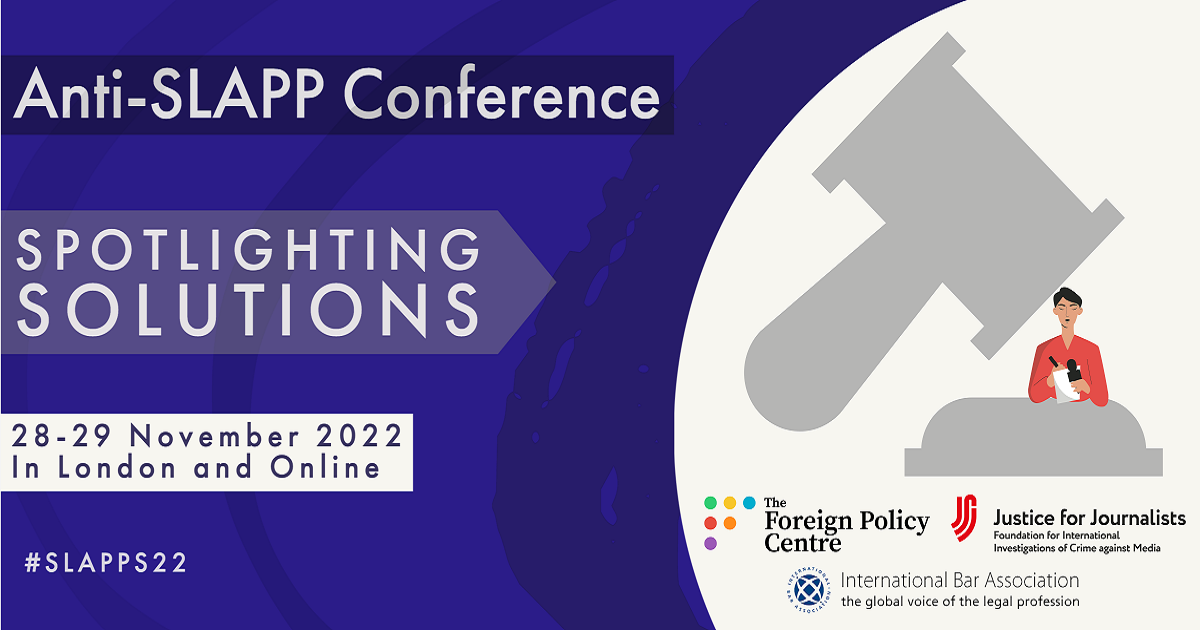REPORT: ATTACKS ON MEDIA WORKERS IN 2021: AZERBAIJAN AND CENTRAL ASIA

Today, the Justice for Journalists Foundation released its annual report on the Attacks on journalists, bloggers and media workers in 2021 that covers Azerbaijan, Kazakhstan, Kyrgyzstan, Tajikistan, Turkmenistan and Uzbekistan.
In Azerbaijan, there was a two-fold increase in the number of non-physical attacks. This followed the revelation that the Azerbaijani authorities used the “Pegasus” spyware from the Israeli “NSO Group” to spy on independent journalists and activists. At least 43 incidents of this kind have been recorded.
In Kazakhstan, attacks via judicial and/or economic means have remained the main method of exerting pressure on media workers. In 56% of incidents, the main perpetrators were government officials. The number of non-physical and/or cyber-attacks has tripled since 2017.
In Kyrgyzstan, the greatest number of attacks on media workers was recorded in April 2021, around the referendum on Constitutional amendments and elections for local authorities. The kidnapping of independent journalist Ulukbek Karybek uulu during the Prime Minister’s visit to the Issyk-Kul region was a particularly egregious case.
In Tajikistan, the total number of registered attacks on media workers decreased from 69 cases to 16. 2021 saw Tajikistan’s bloodiest armed clash in recent years, on the border with Kyrgyzstan. During the conflict, a journalist from the “USSR” publication, serviceman Mekhruziddin Boltaev, was killed.
In Turkmenistan, several cases of kidnapping and illegal imprisonment of Turkmen online activists were identified and confirmed, including incidents that took place outside the country’s borders. Physical attacks against Turkmen activists and bloggers took place in both in Istanbul, Turkey and Moscow, Russia. The exact number of non-physical attacks on journalists and bloggers, as well as cases of harassment towards their relatives is unknown due to threats to from law enforcement officials.
In Uzbekistan, the number of attacks via judicial and/or economic means has tripled since 2017. 80% of attacks were committed by government officials. The main targets were journalists/bloggers who criticised the state or commercial entities.
The Justice for Journalists Foundation together with its partners from 12 post-Soviet states (except the Baltic States) carries out daily monitoring of attacks on media workers and publishes the verified incidents on the Media Risk Map in Russian and English. The annual reports are published since 2017 and can be accessed here.
EVENTS AND ADVOCACY

- On September, 21 the Justice for Journalists Foundation together with representatives from the University of Sheffield, the European Federation of Journalists, Article 19 and UNESCO participated in the first roundtable of the OSCE RFoM Safety of Journalists project – Data collection, analysis and reporting on attacks and violence against journalists and promotion of journalistic work.
- On September, 28, the Justice for Journalists Foundation Director Maria Ordzhonikidze and other members of the Council of Europe’s Platform to promote the protection of journalism and the safety of journalists participated in the informal exchange of views on media freedom and safety of journalists organised on the occasion of the 1444th Committee of Ministers meeting.
- On September, 30 Ms. Ordzhonikidze took part in the Consultation of European stakeholders on the occasion of the 10th anniversary of the UN Plan of Action in Brussels, Belgium.
- Between October, 10 and November, 4 the 136th session of the UN Human Rights Committee will take place where Kyrgyzstan and Russia will be reviewed. The Justice for Journalists Foundation has submitted its reports which be found here and here.
- On October, 20, Ms. Ordzhonikidze will moderate the panel Role of Civil Society Organisations in Fighting back against SLAPPs during the European Anti-SLAPP conference. The panel will include speakers from civil society, experts, and those who have been SLAPPed.
SAVE THE DATE: UK ANTI-SLAPP CONFERENCE

The Foreign Policy Centre and Justice for Journalists Foundation are delighted to announce that we are partnering with the International Bar Association’s Human Rights Institute (IBAHRI) for the second edition of the UK Anti-SLAPP Conference to be held on Monday 28th and Tuesday 29th November 2022, both online and in person in London.
To register to attend, and get updates on speakers and sessions, please sign up here. Space to attend in person will be limited, so please write to events@fpc.org.uk to apply.
ORKHAN DZHEMAL MEDIA SAFETY ACADEMY

A number of requests for the online Media Safety Academy course has soared since mobilisation was announced in Russia. In the environment that is increasingly hostile to any independent information, more media workers are seeking ways to protect themselves. The information provided in the online Academy’s modules arms journalists with instructions on how to create safety protocols before going to risk assignment, how to protect devices from hacking and surveillance, how to render first aid in case of emergency, and other crucial knowledge that each media worker should be aware of. Russian-speaking media workers can apply for our online course The basics of media safety and security on the Academy’s website.

On September 19, Forbidden Stories revealed in a new investigation how tribal lands were used to enrich members of the King of Morocco entourage. For that investigation, journalist Omar Radi was sentenced to six years in prison on unrelated charges of “rape” and “espionage.” At the time of his arrest, the Moroccan journalist, whose phone was infected with Pegasus in 2020, had been working on an investigation into land expropriations. Radi had already received threats for this work and had started to collect some documents: a notary act, videos, photos. Forbidden Stories was able to access these elements and after months of investigation can reveal how expropriated tribal lands were used to enrich close associates of the King of Morocco.
